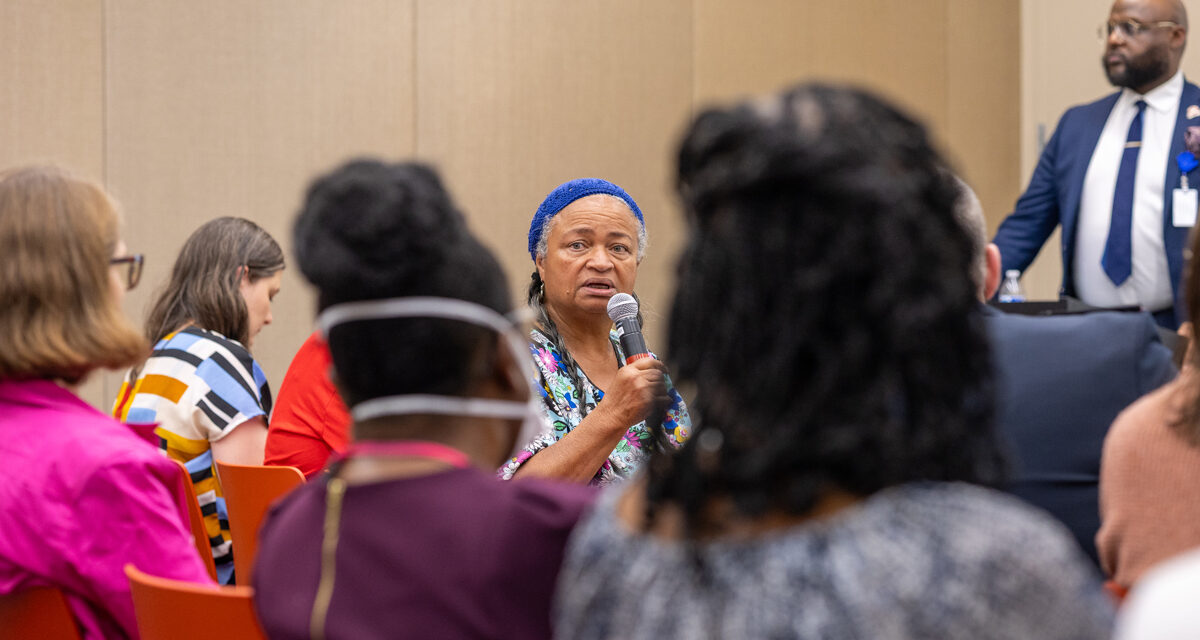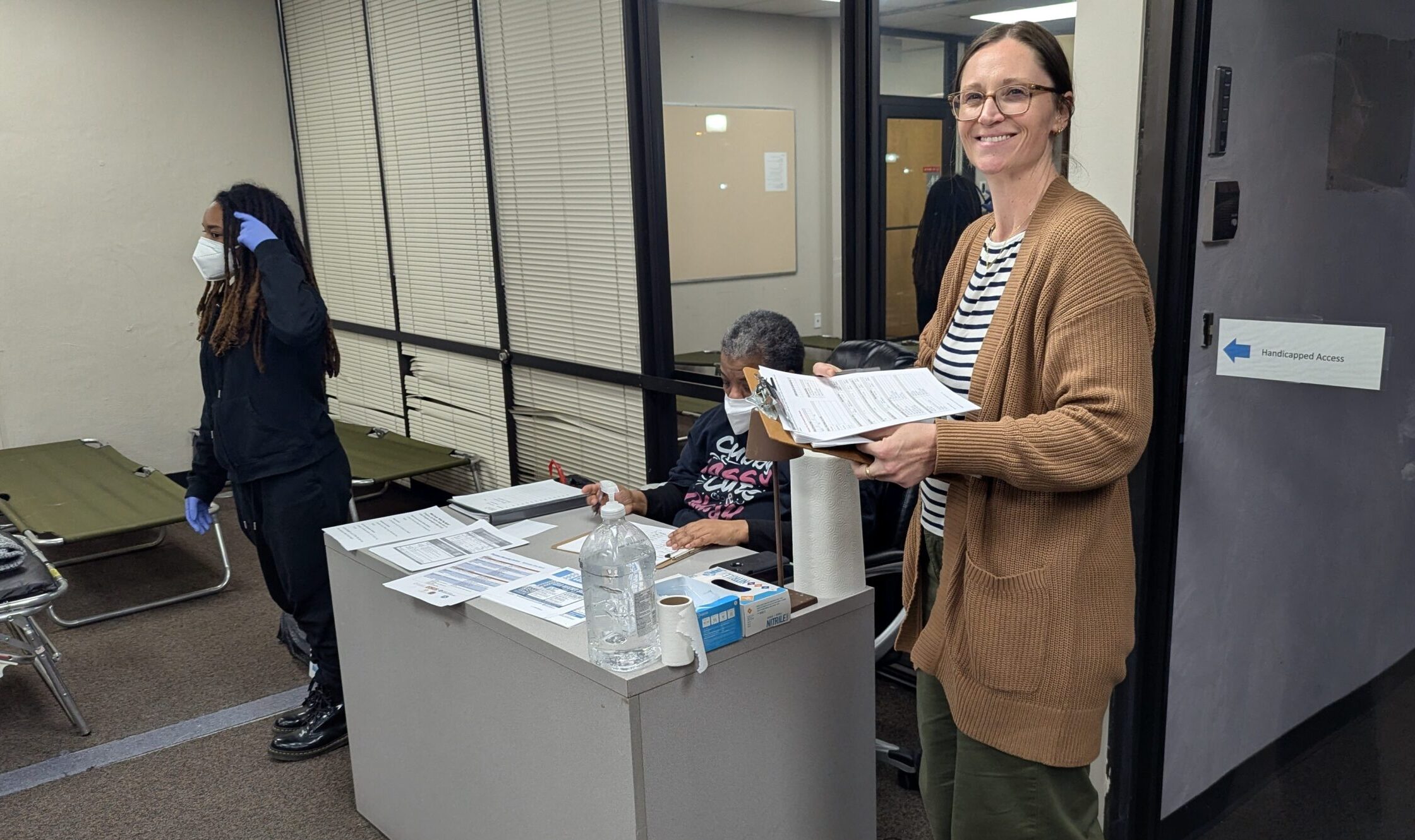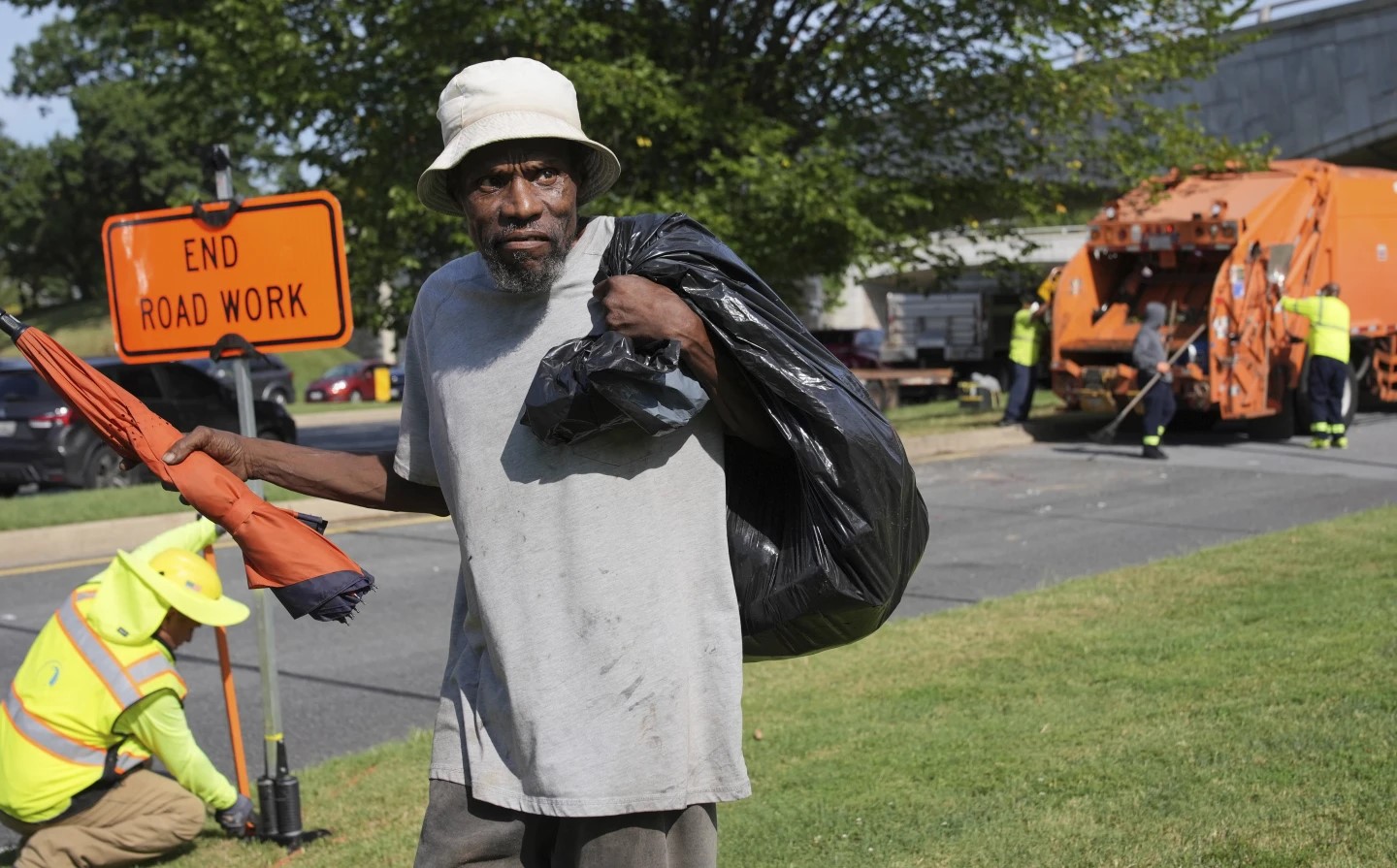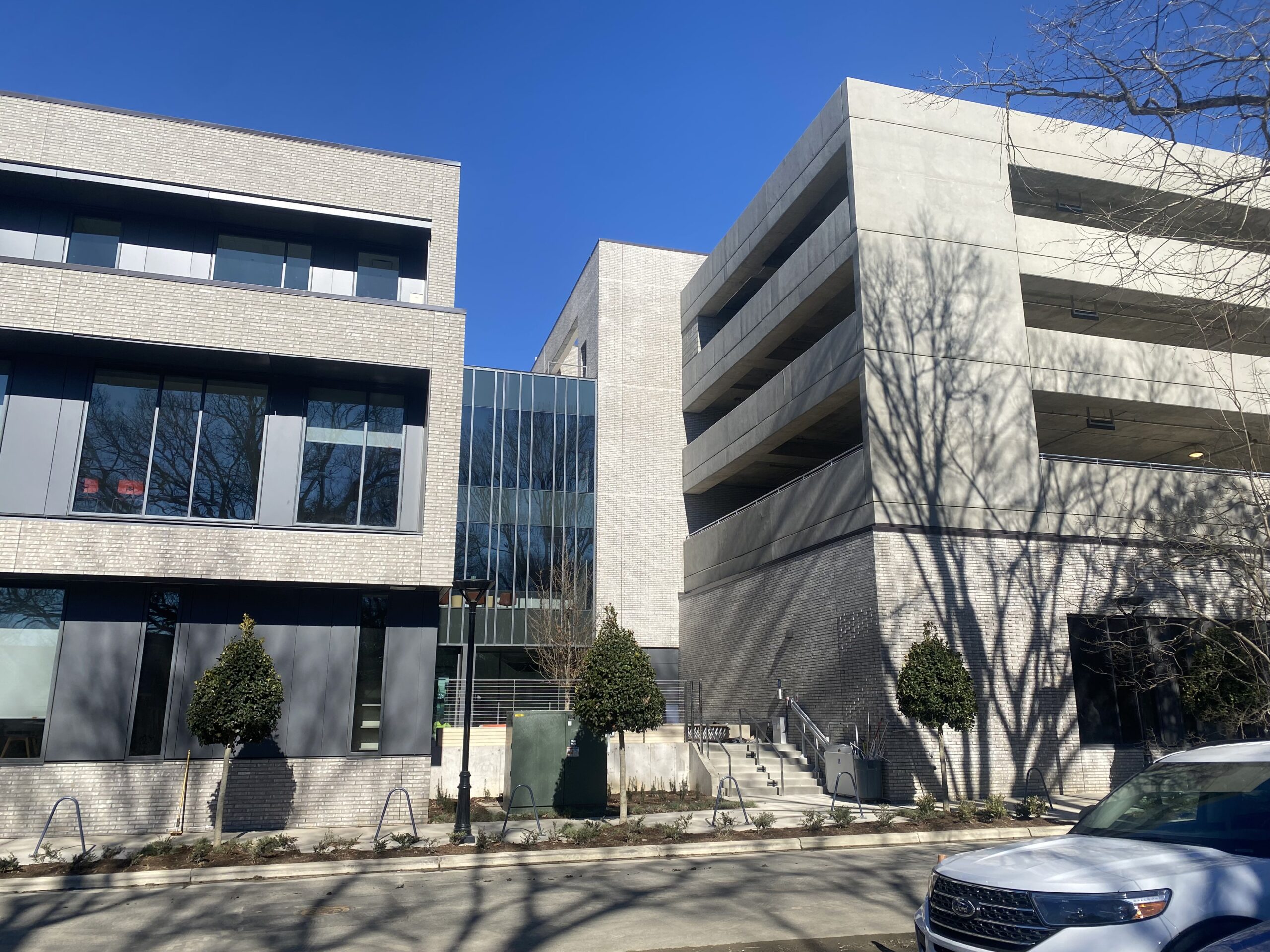While housing is a top issue in Orange County, it’s often referenced to meeting the demands in a limited market. But it’s also a top issue regarding low-income housing for community members in and out of homelessness.
To gauge interest and start a dialogue among residents, the Orange County Partnership to End Homelessness held a town hall the afternoon of Sep. 11. And the event saw a significant amount of support. People crowded into a meeting room of Carrboro’s Drakeford Library Complex – so many, in fact, that organizers had to stop letting folks in out of concern for violating the fire code. Attendees wanted to be on hand to hear the presentation from experts on the data around Orange County’s homeless population and connect with others who have their own approaches to finding long-term solutions.
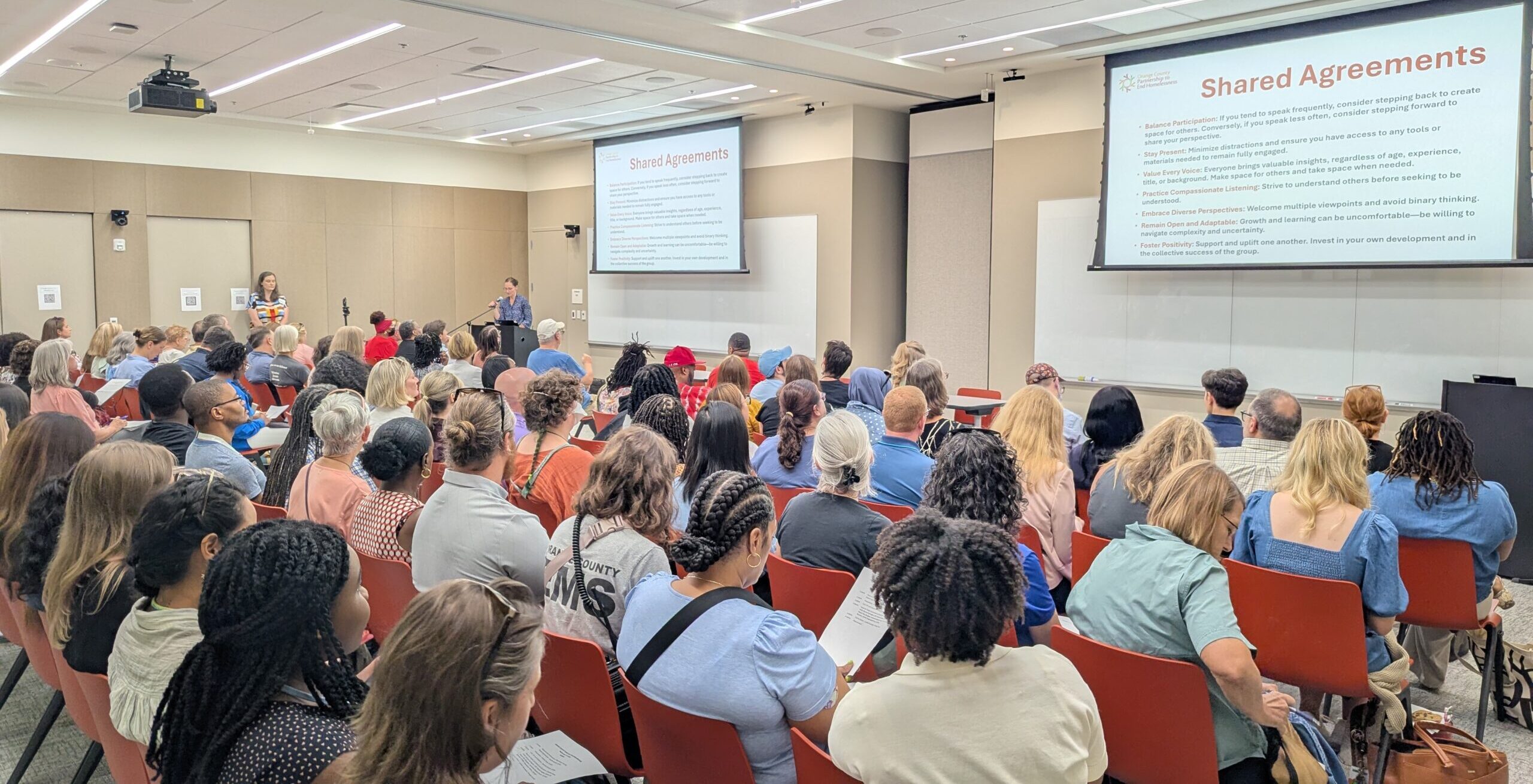
The gathered crowd at the Sep. 11 town hall hosted by the Orange County Partnership to End Homelessness. (Photo by Brighton McConnell/Chapel Hill Media Group.)
The Orange County Partnership to End Homelessness was started by Orange County’s four local governments to serve as a coalition to provide support for anyone seeking shelter or experiencing housing insecurity in the area. As Homeless Programs Manager Danielle DeCaprio also described it, that means the Partnership is the Continuum of Care for Orange County: funding different resources, promoting access to programs and helping unhoused people build self-sufficiency to maintain consistent shelter.
According to data tracked by the NC Coalition to End Homelessness, that local unhoused population was more than 1,300 people in 2024 Project Director Andrea Carey presented details to the group and said that number is by the federal definition of homeless, which includes people staying in dedicated shelters, on the street or in vehicles. Carey also pointed to the population’s age demographics skewing toward middle-aged and disproportionately identifying as Black African American compared to Orange County’s total racial makeup.
In general, Carey described, the county’s partnership has found success in its approaches to outreach and impactful resources. During the 2024 fiscal year, Orange County reported only 11% of people returning to homelessness after being helped to find permanent housing – which is an increase compared to 2023 (7%) but far outpaces the national (17%) and comparable area (16%) medians.
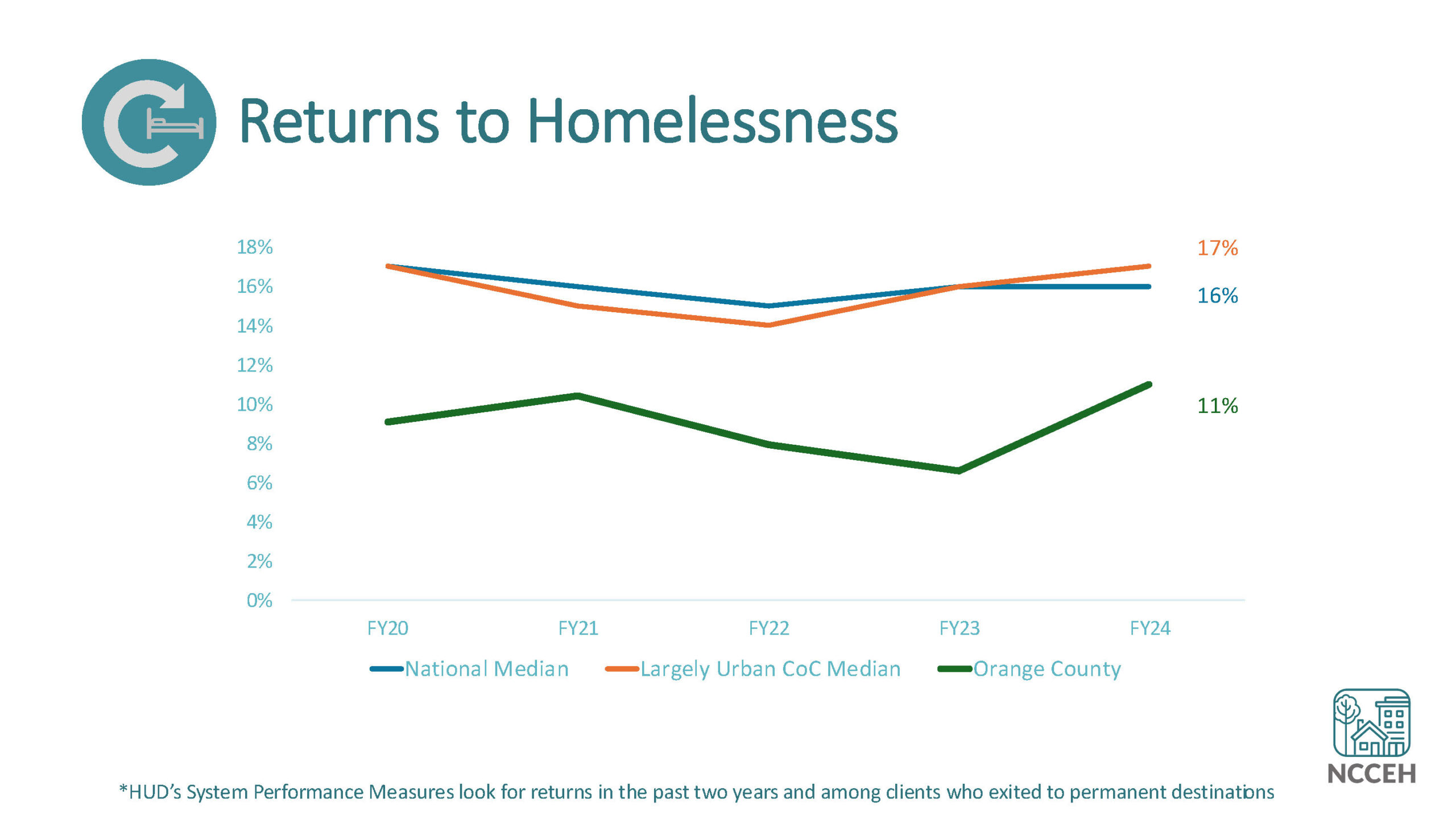
A slide from the NC Coalition to End Homelessness presentation to the town hall on Sep. 11, displaying the recent percentage of returns to homelessness seen in Orange County and other areas.
“For our street outreach project – those are folks who are really great workers that are on the streets working with folks who are experiencing unsheltered homelessness – we are performing well with our exits to either shelter or permanent housing, at 73% last year,” Carey added.
There is still plenty of work to be done to not only keep making improvements but to end homelessness within Orange County. Carey said while efforts like the Rapid Rehousing program and emergency shelters have helped dozens of people find space to live, the amount of people the Partnership has not been able to find solutions for is still overwhelming. The need has spiked since the COVID-19 pandemic, which coincided with when the coalition launched its Housing Helpline to take calls for help and connect people to resources.
“None of those [amounts in programs] compare to the number of folks presenting for services at the Housing Helpline in our coordinated entry system,” she said. “So, our permanent housing resources [and] our shelter resources are just not keeping up with the need we’re seeing from the community.”
To help discuss ideas for improving the Continuum of Care, the town hall featured a panel of six experts who shared their perspectives and strategies for helping unhoused community members. One of the non-local voices was Christiana Osawe, a homeless services specialist with ICF who works with HUD and communities to provide technical assistance on data tracking. She said in working with dozens of communities, many people fail to understand that providing housing is the clearest solution to ending homelessness and lack a spirit of collaboration to tackle the problem. But, Osawe continued, that is clearly not the case in Orange County.
“Something that myself and [my colleague] have seen throughout our time here is just how you all care,” she said, “and how you all are coming together to do the work that’s necessary to make sure folks end up getting housed. That really is the end goal, right? If we can think of any shared goal, it should be to move folks from being in a situation where they are unhoused to being [in one] where they are housed.”
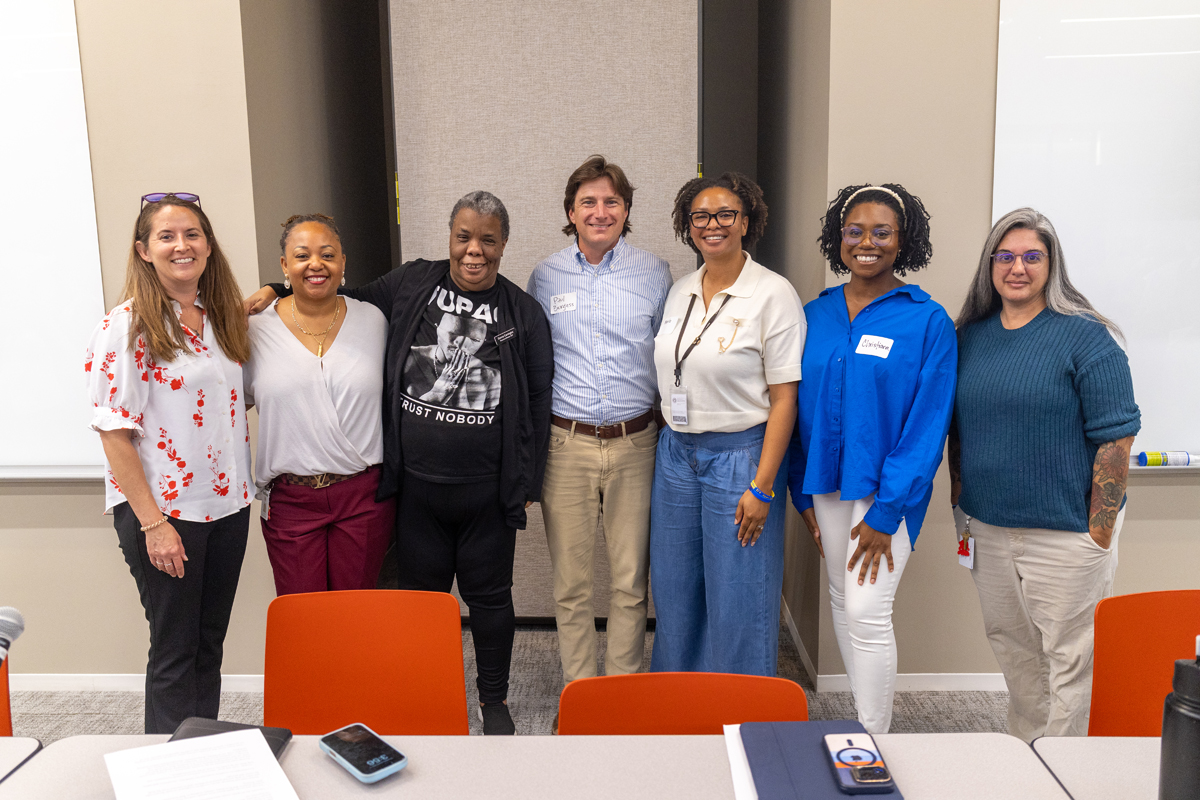
From left to right: Panelists Sarah Belcher of Chapel Hill Police, Stephanie Pinnix of Orange County, Donna Carrington of EmPOWERMent Inc., Paul Burgess of University Baptist Church, Monrita Hughes of Carrboro Police, and Christiana Osawe of ICF pose for a photo with Danielle DiCaprio of OCPEH. (Photo via Kristin Prelipp/Orange County.)
The panel featured people from the public safety, nonprofit and faith spheres – but one group missing was local business leaders. Chapel Hill Town Council Member Paris Miller-Foushee pointed this out during a comment period from the audience, saying their involvement in these conversations is critical since business owners often drive the narrative around homelessness in downtown Chapel Hill.
“I’m concerned with how we capitulate to policing our unhoused community,” added Miller-Foushee. “That is not the solution. So, I want to keep that top of this conversation – especially now more than ever, when it’s easy to scapegoat and criminalize for an absolute systemic failure that we’re putting on the backs of individuals.”
Some of the public comments included audience suggestions for finding or creating space for unhoused people to set up their own shelter, like a designated campsite for them to pitch tents. Blake Rosser, the county’s director of housing, said that is an idea the local governments are considering – but that it is one of “many creative ideas” his department and the Partnership must balance with their budgets.
“We are thinking in creative terms – what we get hung up on is just the zero-sum nature of resources,” Rosser said. “Do we devote resources to acquiring land where folks could camp out on that we would, for liability reasons, would have to have staffed to some degree? We’d be paying for cleanup, things like that… do we devote resources to that? Or do we devote resources to being able to house a half-dozen families for a year in our rapid rehousing program? Unfortunately, we’re constantly in that cost-benefit analysis mindset… which is not to say that’s a bad idea at all, because I do think we need to get more creative and bolder with the solutions we’re envisioning.”
A livestream of the entire Sep. 11 Orange County Partnership to End Homelessness town hall can be watched on the county government’s Facebook page.
Featured photo via Kristin Prelipp/Orange County.
Chapelboro.com does not charge subscription fees, and you can directly support our efforts in local journalism here. Want more of what you see on Chapelboro? Let us bring free local news and community information to you by signing up for our newsletter.

